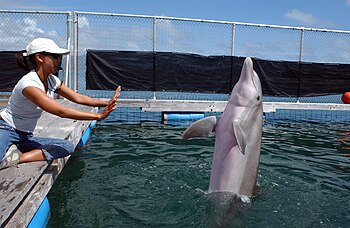Source: http://earthobservatory.nasa.gov/IOTD/view.php?id=84499
According to Anthropogenic Global Warming (AGW) theorists, rising global temperatures (resulting from anthropogenic CO2 releases) are causing glaciers and polar ice caps to shrink, increasing the amount of solar energy Earth absorbs, and so raising global temperatures even further by this positive feedback effect. This is one reason the climate sensitivity factor (the final, total temperature rise due to an initial warming) has been consistently reported to be around 3 (e.g., an initial rise of one degree from rising CO2 yields a final total of three degrees) for years.
If the theorists are correct, the Earth's albedo (the fraction of solar energy the planet reflects back into space) ought to be getting smaller, although perhaps by only a small amount.
Interestingly, we have sound scientific data on changes of Earth's albedo, so we can test this part of AGW theory against reality, at least over a reasonably time period. This reality is represented by the quote and picture shown below (taken from the source page referenced in the first line):
________________________________________
"The maps [below] show how the reflectivity of Earth—the amount of
sunlight reflected back into space—changed between March 1, 2000, and
December 31, 2011. This global picture of reflectivity (also called
albedo) appears to be a muddle, with different areas reflecting more or
less sunlight over the 12-year record. Shades of blue mark areas that
reflected more sunlight over time (increasing albedo), and orange areas
denote less reflection (lower albedo).
"Taken across the planet, no significant global trend appears. As
noted in the anomaly plot below, global albedo rose and fell in
different years, but did not necessarily head in either direction for
long."
As the quote admits, and your own eyes can plainly see, the change in Earth's albedo over the 2000-2012 time span is either zero or so close to zero as to make no practical difference. And it is clearly in contradiction to what AGW theory, which claims a significant amount of polar and glacial ice loss during this time.
It seems likely, however, that the planet's albedo has been subject to several forces that would either raise or lower it, but that these forces have canceled each other out over this time period. If so, it is reasonable to suggests overall albdedo might decline in the future. But there is no clear evidence that we should expect this. I hold that the steadiness of albedo from 2000-2012 is clear evidence that this positive feedback simply does not exist, or require much larger rises in planetary temperature.
A Medley of Potpourri is just what it says; various thoughts, opinions, ruminations, and contemplations on a variety of subjects.
Search This Blog
Wednesday, August 10, 2016
Subscribe to:
Posts (Atom)
-
From Wikipedia, the free encyclopedia Islamic State of Iraq and the Levant الدولة الإسلامية في العراق والشام ( ...
-
From Wikipedia, the free encyclopedia A reproduction of the palm -leaf manuscript in Siddham script ...

